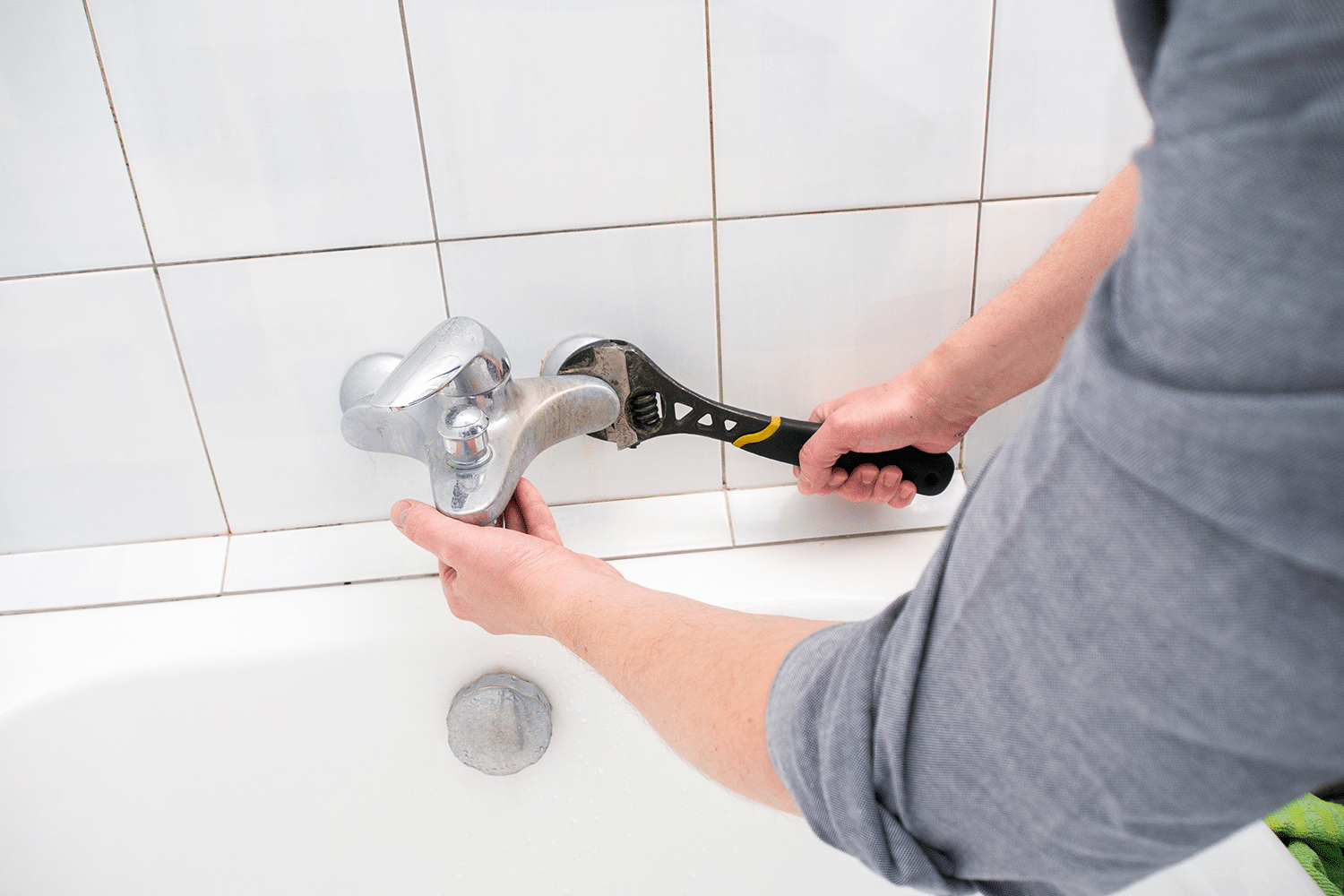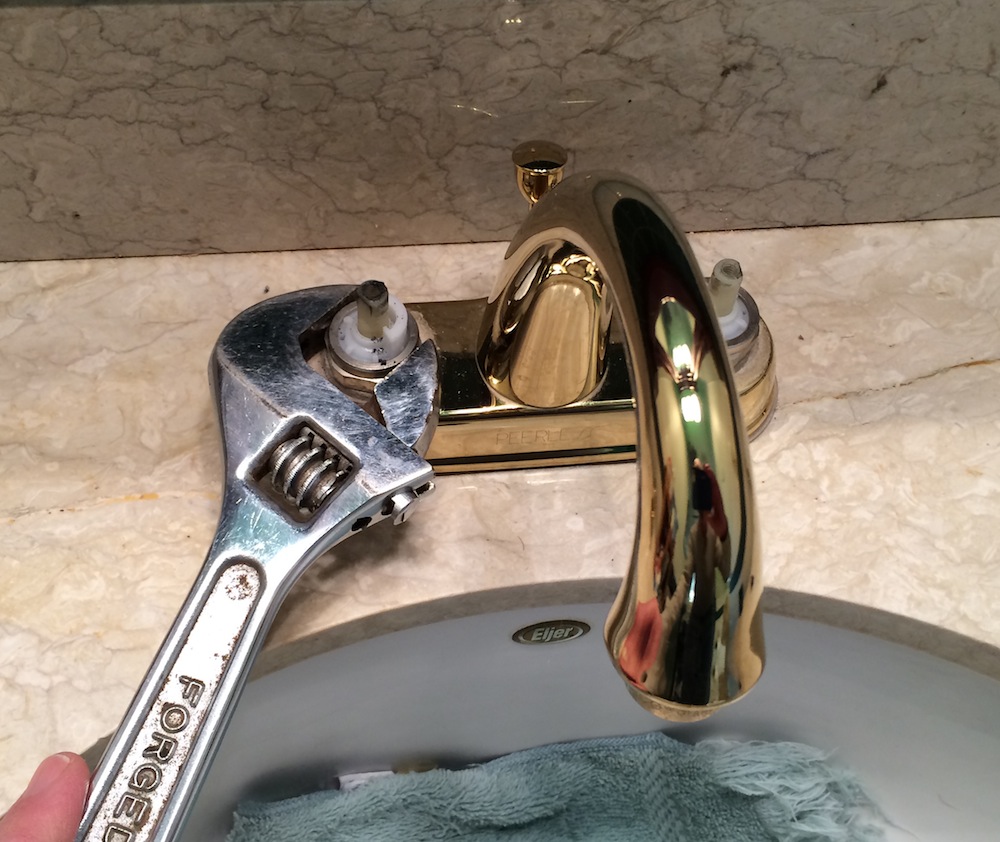This article in the next paragraphs on the subject of Leaky Faucets: Why They Happen & What to Do About Them is fairly interesting. Read it for yourself and figure out what you think of it.

Dripping taps could feel like a small trouble, however their effect goes beyond simply the annoyance of the audio. From wasting water to incurring unneeded financial expenses and wellness risks, ignoring a dripping tap can result in different repercussions. In this short article, we'll delve into why it's critical to address this usual household problem promptly and successfully.
Wastage of Water
Ecological Influence
Trickling faucets add significantly to water waste. According to the Environmental Protection Agency (EPA), a single faucet dripping at one drip per second can throw away more than 3,000 gallons of water annually. This not only stress water sources yet also impacts ecological communities and wildlife dependent on them.
Financial Costs
Raised Water Expenses
Beyond the ecological impact, dripping faucets can blow up water expenses substantially. The built up wastage over time equates into greater utility expenditures, which can have been prevented with prompt fixings.
Prospective Building Damages
Moreover, extended leaking can cause harm to fixtures and surfaces surrounding the tap. Water buildup can create staining, rust, and also architectural concerns if left ignored, leading to extra repair work prices.
Health and wellness Concerns
Mold And Mildew and Mold Growth
The continuous existence of dampness from a leaking faucet produces an optimal environment for mold and mildew and mold growth. These fungis not just jeopardize interior air high quality yet likewise posture health and wellness threats, specifically for people with respiratory problems or allergies.
Waterborne Conditions
Stationary water in leaking taps can become a breeding ground for germs and various other virus, increasing the danger of waterborne illness. Pollutants such as Legionella bacteria prosper in stationary water, potentially leading to severe health problems when consumed or inhaled.
Do it yourself vs. Specialist Repair work
Pros and Cons of DIY Fixing
While some may try to deal with a trickling faucet themselves, do it yourself fixings include their very own set of obstacles. Without appropriate expertise and devices, do it yourself attempts can exacerbate the concern or bring about insufficient repairs, extending the trouble.
Benefits of Employing an Expert Plumber
Employing a specialist plumber ensures that the underlying root cause of the dripping faucet is addressed successfully. Plumbing professionals possess the knowledge and equipment to identify and repair faucet issues successfully, saving time and reducing the danger of additional damages.
Step-by-Step Guide to Fixing a Dripping Faucet
Tools Required
Before attempting to deal with a leaking tap, collect the required devices, including a flexible wrench, screwdrivers, substitute parts (such as washing machines or cartridges), and plumber's tape.
Typical Tap Issues and Their Solutions
Recognize the sort of tap and the details issue triggering the drip. Usual troubles include worn-out washing machines, rusty shutoff seats, or malfunctioning O-rings. Refer to producer directions or on the internet tutorials for step-by-step support on repair work.
Preventive Measures
Routine Upkeep Tips
To stop dripping taps, do routine maintenance such as cleansing aerators, evaluating for leakages, and changing damaged components without delay. Additionally, consider installing water-saving tools or upgrading to a lot more efficient fixtures.
Significance of Prompt Services
Resolving leaking taps as quickly as they're discovered avoids additional water wastage and potential damages, ultimately saving both water and cash in the long run.
Effect On Building Value
Perception of Well-Maintained Property
Keeping a residential property in good condition, including addressing upkeep concerns like dripping faucets, improves its perceived worth and desirability amongst possible customers or tenants.
Impact on Resale Value
Features with properly maintained plumbing components, consisting of taps, command greater resale worths in the property market. Resolving trickling faucets can contribute to a positive impression during building assessments and settlements.
Environmental Duty
Private Contribution to Preservation
Taking obligation for dealing with trickling faucets lines up with broader initiatives toward water preservation and environmental sustainability. Every individual's actions jointly make a considerable influence on preserving priceless sources.
Sustainable Living Practices
By focusing on punctual repair work and taking on water-saving behaviors, people contribute to lasting living practices that profit both existing and future generations.
Verdict
Attending to a trickling faucet surpasses simple ease; it's a necessary step toward conserving water, reducing financial costs, and securing health and wellness and building. Whether with do it yourself repairs or professional assistance, doing something about it to deal with leaking taps is a tiny yet impactful way to advertise accountable stewardship of sources and add to a much healthier, more sustainable future.
How to Fix a Leaky Faucet: Step-by-Step Repair Guide
A leaky faucet may seem like a simple annoyance, but if it's not fixed promptly, that leak could cost hundreds to potentially thousands. From water damage to mold, mildew, and high water bills, even a tiny leak can be catastrophic if left unattended. Damage like this can even affect the overall value of your home, so it's important to take the right approach for leaky faucet repair. You may need the help of a plumber in some cases, but we've got a few tips you can try on how to fix a leaky faucet before calling the pros.
Four Faucet Types
When you're learning how to fix a leaky faucet, the first step is knowing what kind of faucet you're working with! There are four common types.
Cartridge Faucets
Cartridge faucets come in one- or two-handled varieties. In one-handled cartridge faucets, hot and cold water combines in a single cartridge. In the two-handled versions, hot and cold water are controlled separately and mixed in the faucet.
Ball Faucets
Ball faucets have a single lever you push up and down to adjust the pressure and rotate to change the temperature. A slotted metal ball controls the amount of water allowed into the spout.
Compression Washer Faucets
They're the oldest type of faucet, but they're still used in many homes — especially older ones. Compression faucets have two separate handles that, when turned, raise or lower the washer that seals a water valve. This valve stops water from flowing through the faucet when it is turned off.
Disc Faucets
Disc faucets rarely need to be repaired due to their maintenance-free design. The water flow is controlled by two discs — the upper one raises and lowers against a fixed lower disc, creating a watertight seal. If your disc faucet starts leaking, you may need to replace the seals or clean residue buildup from the inlets.
Fixing a Leaky Faucet
Step 1: Turn Off the Water
Whether you're learning how to fix a leaky bathtub faucet or how to fix a leaky kitchen faucet, always turn off the water supply to your working area when you're fixing a leak. The last thing you want is a flood added to your list of things to fix.
Look for the shutoff valves below your sink or around the tub and turn them clockwise to stop the water flow. If your faucet doesn't have shutoff valves, you may need to turn off the water for the whole house. Check to make sure it's off by turning the faucet on. If nothing comes out, you're ready to start the repair.
Step 2: Take Apart the Faucet
How you disassemble your faucet depends on the type of fixture you have. You can use a flathead screwdriver to remove the caps on top of the handle or handles for cartridge and compression faucets. Inside, you should see handle screws. Unscrew these with a screwdriver to remove the handle.
Disc- and ball-style faucets will typically have an inlet screw near the handle, and removing that will reveal the interior of the faucet.
Detach the Valve Stem
For cartridge- and compression-style faucets, you'll see the inner valve stem or cartridge once you remove the faucet handles. If you have a compression faucet, unscrew the brass valve stem. If you have a cartridge faucet, pull out the cartridge. If your cartridge has been in place for a while, it may require some tools or extra force to remove it due to mineral deposits.
Examine and Replace Parts
Once you've removed the parts, check them out to confirm what needs to be replaced. You may see corroded rubber washers, O-rings, stems, or cartridges. On a ball-style faucet, check the seats and springs for damage.
If you need to repair a leaky disc faucet, check the inlet and seals on the lower disc.
Once you determine what parts must be replaced, visit your local hardware store. Bring the damaged parts with you to ensure you can purchase the correct components to replace them.
Clean Valves and Faucet Cavity
If you've removed a stem or cartridge, you may notice mineral buildup in the faucet's threads. Use white vinegar to clean the valve seat by soaking it for a few minutes, then scrub it away with a soft toothbrush and rinse with warm water. You can also clean the interior of the faucet in the same way.
Reassemble the Faucet
Once your faucet is cleaned and the required parts have been replaced, it's time to reassemble it. Put the pieces back together and slowly turn the water supply back on. Doing this slowly is crucial because too much initial water pressure can damage the new hardware you've just installed.
https://homewarranty.firstam.com/blog/how-to-fix-leaky-faucet

Do you really like more info about What Causes Leaky Faucets & How To Fix Them? Leave feedback further down. We will be pleased to listen to your opinions about this piece. We hope that you come back again before long. Don't hesitate to take the time to promote this page if you enjoyed reading it. Thanks a lot for taking the time to read it.